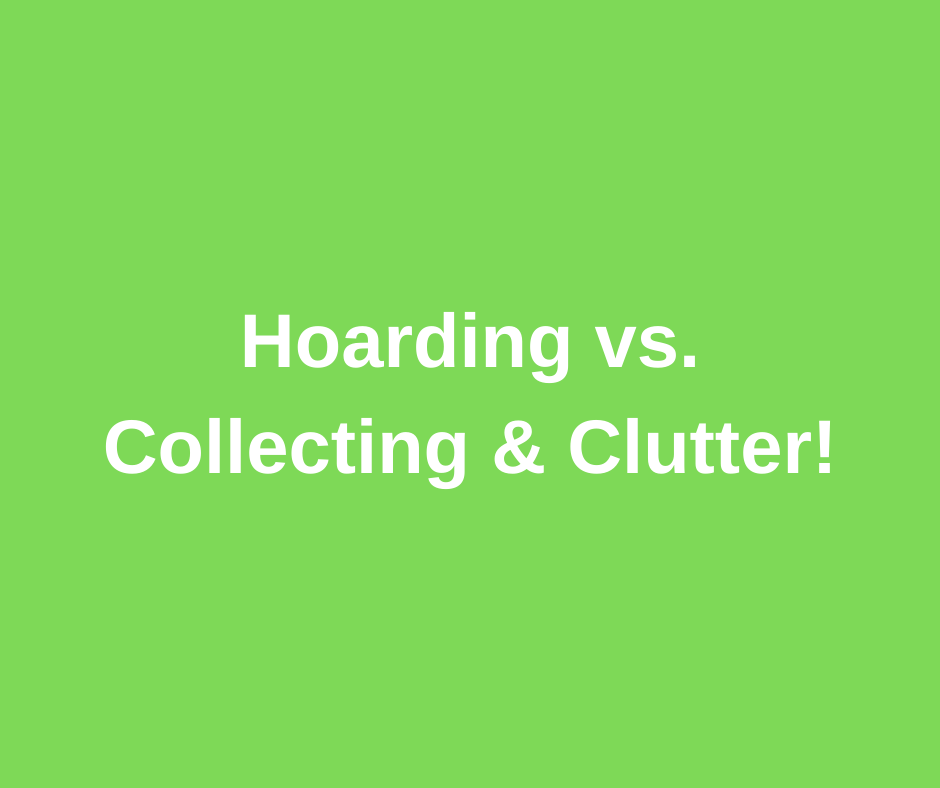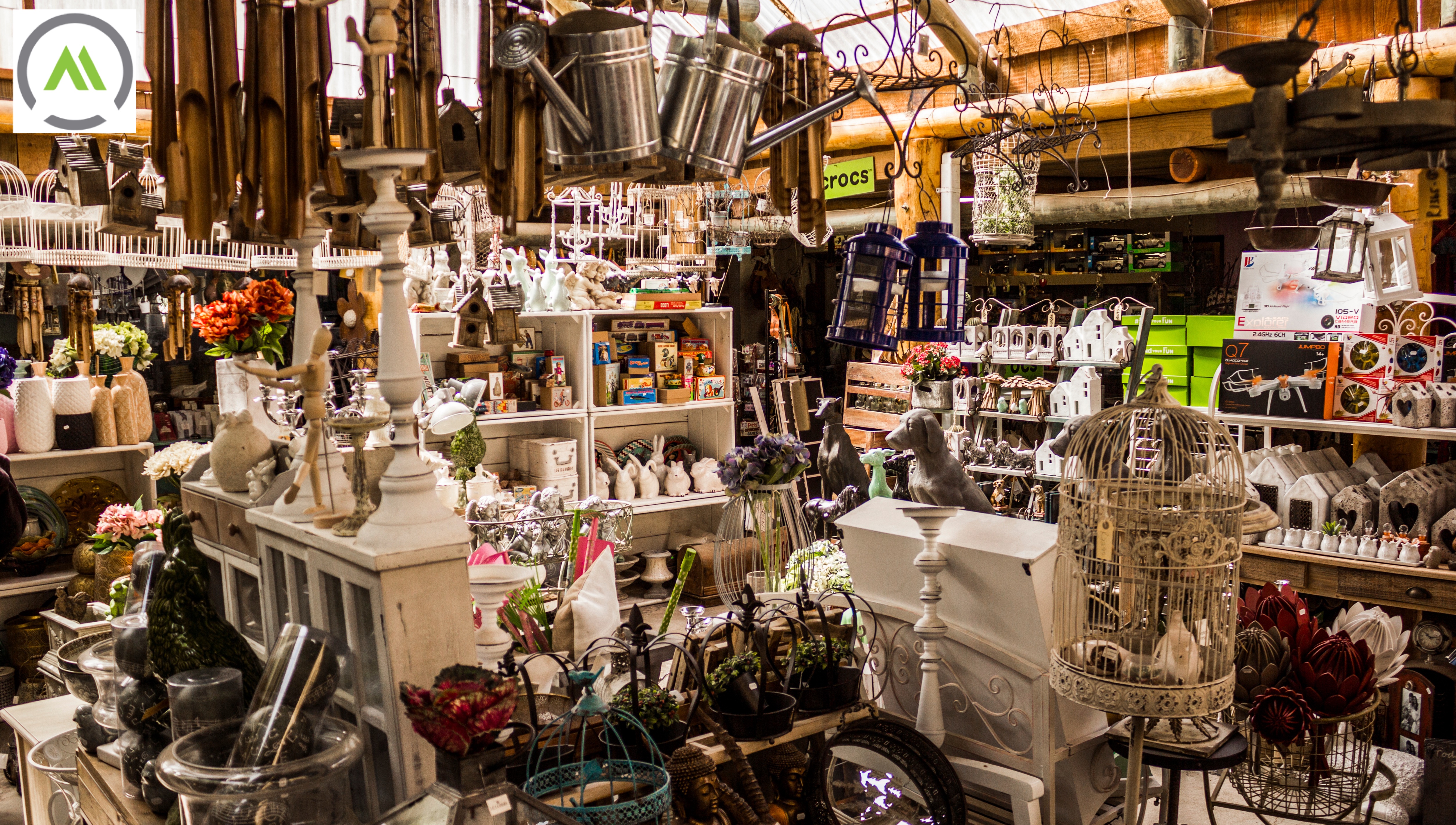 Determining the Difference Between Hoarding, Collecting, & Clutter
Determining the Difference Between Hoarding, Collecting, & Clutter
Not everyone who accumulates exorbitant quantities of clutter has “hoarding disorder”, they may simply have a clutter problem, or they may be a collector. Most households experience varying stages of clutter at a given moment. From simple piles of junk mail, books, and newly-purchased groceries, to small mounds of clean or dirty laundry, reusable shopping bags, and boxes. Often, a busy household will not have the time to properly sort and organize their belongings immediately. Others who deal with clutter may not be able to physically carry or lift items to properly organize them. Only a mental health professional can diagnose hoarding disorder but we have provided the medical definition (below) from the Mayo Clinic along with our own definitions of clutter and collecting as a professional hoarding cleanup company. Creating distinct separations between someone with hoarding disorder, clutter, and collections is important to ensure that the cleaning project is approached properly allowing for effective medical treatment by a mental health professional.
Hoarding vs Collecting vs Clutter
Hoarding Disorder (Definition):
Hoarding disorder is defined as someone who has “a persistent difficulty discarding or parting with possessions because of a perceived need to save them” (Mayo Clinic).
Note: Hoarding is the excessive collecting of trash, personal items, food, animals, etc. without being able to throw anything out or let go of their animals. An individual with hoarding disorder, will not be able to control the items that they keep because they cannot bring themselves to throwaway or giveaway the items persistently.
Collecting (Definition):
Someone who can consistently keep their collected items contained to certain parts of their home where they can be taken care of, not allowing the items to negatively affect their life or the life of those around them.
Clutter (Definition):
Someone who can consistently keep their items contained to certain unused parts of their home as storage through periodic cleaning, organization, and discarding of items, not allowing the clutter to negatively affect their life or the life of those who are around them.
If you suspect a loved one of hoarding use the four tips below to help convince the individual that they have a problem that must be addressed:
1. Develop Trust
Hoarding interventions must be handled delicately in order to prove to the hoarder that you are worthy of their trust. Building a bond of absolute trust during the hoarding intervention process is the key to a successful recovery effort. Whether the hoarder is dealing with a minor hoarding situation, or more dangerous conditions like those displayed in animal hoarding situations, interventions must be extremely subtle, private, and respectful.
2. Observe Avoidant Behaviors
Hoarders are typically embarrassed by their living conditions, often going out of their way to hide their lifestyle from their closest of friends and family. To avoid lectures about deep clutter cleaning and life-altering treatment plans, hoarders will often distance themselves from siblings, parents, children, friends, and co-workers. Should a loved one find that someone important in their life is suffering from hoarding an intervention must be conducted and it should be extremely private and respectful in order to give the best chance for success.
3. Privacy is Key to Development:
Privacy is key to developing a successful hoarding treatment plan. Hoarding specialists and case managers from Address Our Mess understand the discrete element of hoarding cleaning. By persuading the hoarder to trust in their friends and family again the hoarder can potentially open up about the trauma that may have caused their condition, giving them a better chance of a successful recovery. It is also important to never pass judgment or lose one’s temper with a hoarder. Remember, the hoarder has chosen to risk embarrassment and humiliation by sharing his or her condition with someone. Keeping the bond of trust in tact is crucial to changing the hoarder’s life for the better.
4. Patience for Slow Progress:
Patience is necessary to keep the hoarder on track and focused. While those conducting the intervention may have just uncovered this horrible way of life, the hoarder has probably lived this way for many years. Therefore, it is important to remember that patience will go a long way to help the hoarder progress towards a successful recovery even if the progress feels slow to the people involved.
In time, hoarding therapists can be called upon to further address the root of the hoarding condition. However, allowing the person to start anew in a clean and sanitary home is the key to affording them the fresh start he or she so desperately needs.
Finding the right hoarding cleaning service is essential to a hoarding cleanup project and to living a happy, healthy life in recovery. For more information call us at 410-589-2747, email info@addressourmess.com, or use our contact us page to learn more about our clutter cleanup service, hoarding cleanup service, and animal hoarding service.
